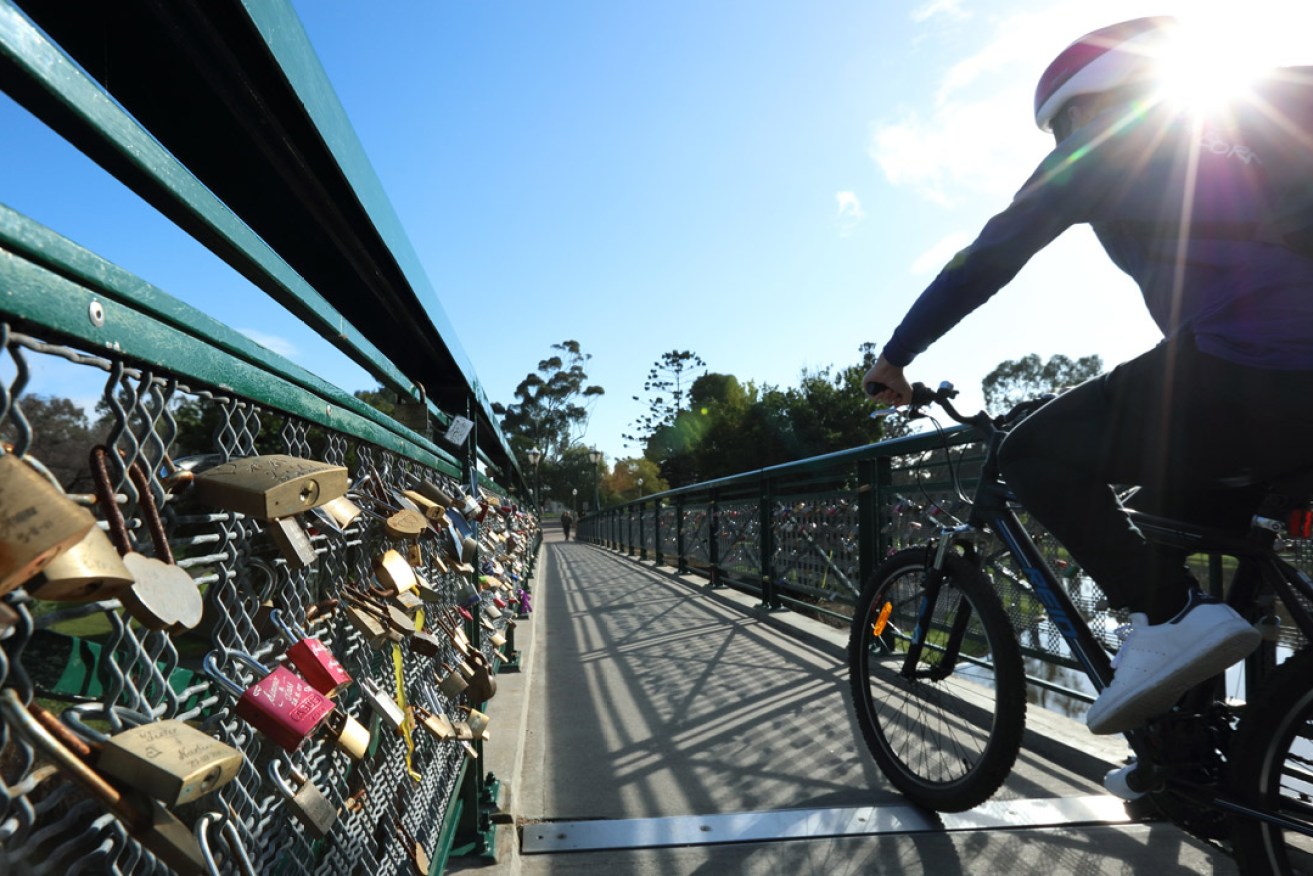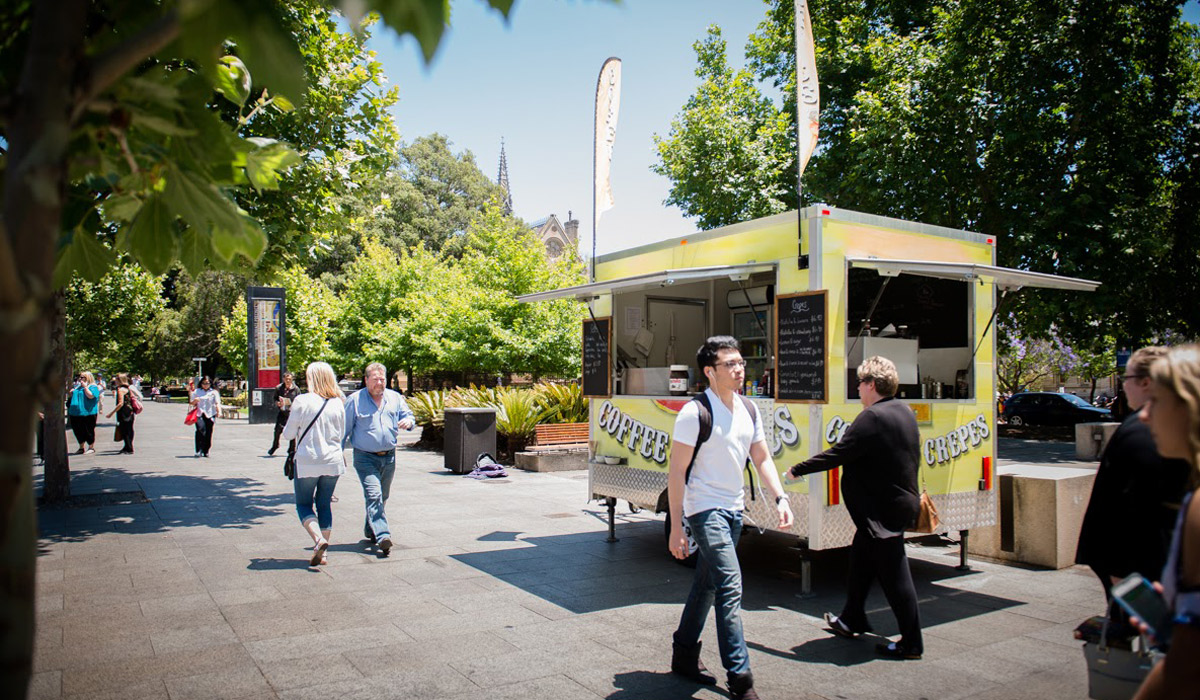Love locks versus food trucks – which is more trivial?
The councillor who has been pushing for the removal of the ‘love locks’ from the Adelaide University footbridge says the State Government should focus on more important issues than the food trucks industry.


A council report warned that the Adelaide University love locks may pose a safety risk. Photo: Tony Lewis / InDaily
Early this year, city councillor Alex Antic asked council staff to produce a report on whether the structural integrity of the bridge would be threatened by the weight of the love locks.
The resulting report from council engineers, released last week, found that the locks posed no risk to the strength of the bridge – at least for the next 10 years – and that a full structural assessment was unnecessary. However, it said there was a “low-level risk” that someone may sustain an injury walking or cycling into one of the padlocks.
Last night, the city council voted to unlock, or cut, the romantic tributes from the bridge following a three-month “amnesty” period. It will erect a $30,000 public artwork to which the padlocks will be reattached.
During a separate debate at last night’s meeting, concerning the State Government’s legislation to force councils to automatically grant mobile food vending licences to an unlimited number of food truck vendors, Antic told the chamber the Government should focus on more important issues than food trucks, such as the state’s high unemployment rate.
But Lord Mayor Martin Haese diplomatically rebuked his councillors for their focus on the footbridge love locks this morning, telling InDaily: “In the future, I encourage the councillors to focus on strategic matters that are better aligned with our plan to grow the City of Adelaide”.
Haese has previously warned there may be a large ongoing cost of removing the locks from the bridge each year, and that there is no guarantee people will attach their love locks to the new public artwork.
Area councillor Anne Moran, who supported the removal of the love locks, this morning conceded it was “ironic” that the State Government was being criticised for focussing on trivial issues, given the council’s own focus on the metallic tributes.
“Everybody’s at fault for spending too much time on it [the love locks issue],” she said.
However, she said the Government was at greater fault than the council, because “they haven’t just wasted their own time [on food trucks deregulation], they have interfered in another level of government”.
“You only interfere in another level of government if it’s critical – this isn’t critical.”
Central Ward councillor Houssam Abiad described last night’s decision on the love locks as “premature but appropriate”.
“It’s not an issue [now] but it will become an issue,” he said.
“If we’re able to curb people’s behaviour [attaching the locks to the bridge] now it would not be a problem [in the future].
“Would I call it high on the council priority [list]? No.”
But the food trucks industry was high on Abiad’s priority list last night.
He proposed a motion asking from a report from council staff into the impact of the Government’s proposed legislative changes affecting Adelaide’s mobile food vending and fixed food business industries.
He told InDaily this morning that opening up an unlimited number of licences for food trucks in the city may threaten the survival of the “fragile” industry more than it threatens the bricks-and-mortar businesses with which it competes.

A crepe and coffee cart trading on North Terrace. Photo: Nat Rogers / InDaily
He warned that if “60 or 70” operators applied for food truck licences under the Government’s proposed regime, “the quality of the mobile food vending program will disintegrate”.
That’s despite arguing earlier this year that the limit – which he proposed – on the number of food trucks that could operate in the city in the day time would have no practical impact on mobile operators, because a maximum of only eight trucks were ever seen on Adelaide’s city streets anyway.
He said, at the time, that the daily cap on the number of food trucks was designed to change a flawed “perception” of the food trucks industry, held by fixed city businesses, that the industry was larger than it was, and posed a greater threat than it did.
Abiad said this morning that the council wanted to “manage the perception” that the industry was larger than it was, and denied that his latest warnings about a flood of new food truck operators would add to that perception.
“People need to feel like they’re not being tormented [by an unlimited amount of food trucks],” he said.




